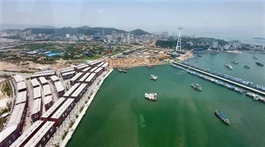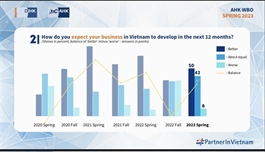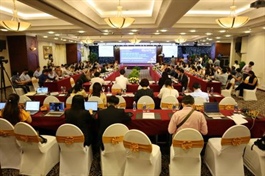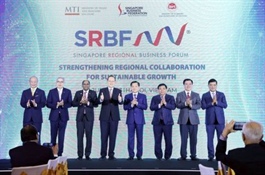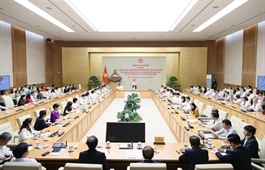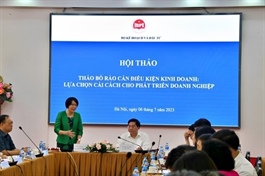Vietnam remains attractive to European investors
Vietnam remains attractive to European investors
Vietnam remains appealing to European investors amidst the tough global situation, according to the latest report by The the European Chamber of Commerce in Vietnam.

EuroCham Vietnam, the voice of the European business community in the country, has released the results of its highly anticipated Business Confidence Index (BCI) for the second quarter of 2023.
Conducted by Decision Lab, the BCI reveals a modest decline of 4.5 points in European business confidence towards the Vietnamese market, with the current score of 43.5 reflecting prevailing market conditions.
Accordingly, the BCI indicates a challenging outlook, with a significant 10 per cent increase in negative responses to the current business situation. This growing sense of caution is further reflected in a 6 per cent rise in negative sentiment for the upcoming quarter.
However, amidst the challenges, there is also a glimmer of encouraging news. The report shows a 9 per cent increase in the number of business leaders who assess their business prospects positively for the third quarter of 2023 compared to their assessment for the second quarter of 2023.
Businesses are prudently assessing the landscape, focusing on optimising revenue and orders, with a marginal increase of 4 per cent in the proportion of companies anticipating a decline in these areas. Additionally, there is a proactive approach, as 7 per cent more companies plan to carefully manage investments in the upcoming quarter. It is intriguing to note that despite these challenges, workforce planning remains stable, reflecting a resolute commitment to maintaining stability regardless of the prevailing conditions.
Despite the challenges, Vietnam continues to draw foreign investors, with 48 per cent of respondents expecting an increase in their company's foreign direct investment (FDI) in the country next quarter. However, a total of 40 per cent of businesses express no plans for elevated FDI, marking a 4 per cent increase from the previous BCI. Nevertheless, Vietnam remains firmly positioned among the top five investment destinations for over one-third of businesses, underscoring its enduring appeal.
Respondents also highlighted the importance of improving the regulatory environment, developing infrastructure, and ensuring access to financing to enhance Vietnam's attractiveness for FDI. The report also emphasises that unclear regulations and onerous administrative procedures are the primary barriers hindering FDI, with 53 per cent and 50 per cent of businesses, respectively, citing them as the most significant regulatory obstacles.
The survey reveals that over half of the businesses surveyed have benefited from the European Union-Vietnam Free Trade Agreement. Among these beneficiaries, 35 per cent of business leaders have reported gains from tariff reductions. Despite these gains, businesses continue to face challenges in fully capitalising on the agreement, with administrative procedures and a lack of understanding remaining the main barriers to full capitalisation.
Gabor Fluit, chairman of EuroCham said, "Vietnam's economy relies heavily on manufacturing and exports, and it has taken a big hit from the tough global situation. This decline in exports and orders has had a major impact on European businesses and the overall business community. The BCI clearly shows this current gloomy outlook."
"To address these challenges, the Vietnamese government has swiftly taken practical steps, particularly by expediting key infrastructure projects. We commend these efforts, which will surely bring a substantial long-term boost to the economy. However, our members have expressed genuine concerns about the issues raised in the BCI report, and we have been actively collaborating with the government to find effective solutions. For instance, it is crucial for the government to come up with long-term plans to address the recent power shortage problem, considering its cyclic nature. By taking prompt and comprehensive action, we can not only entice foreign investment, but also ensure a resilient economy capable of overcoming future obstacles," he added.







